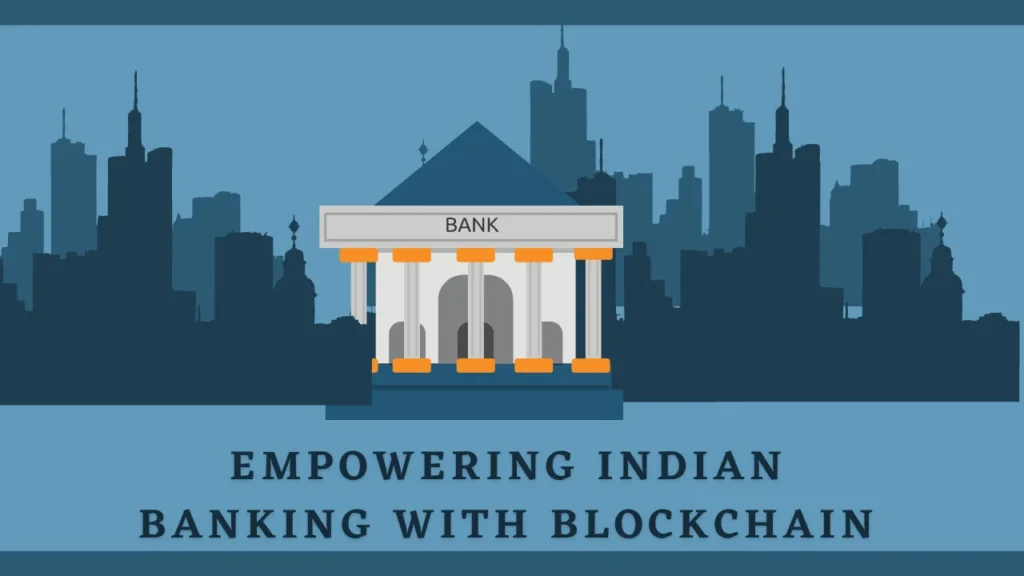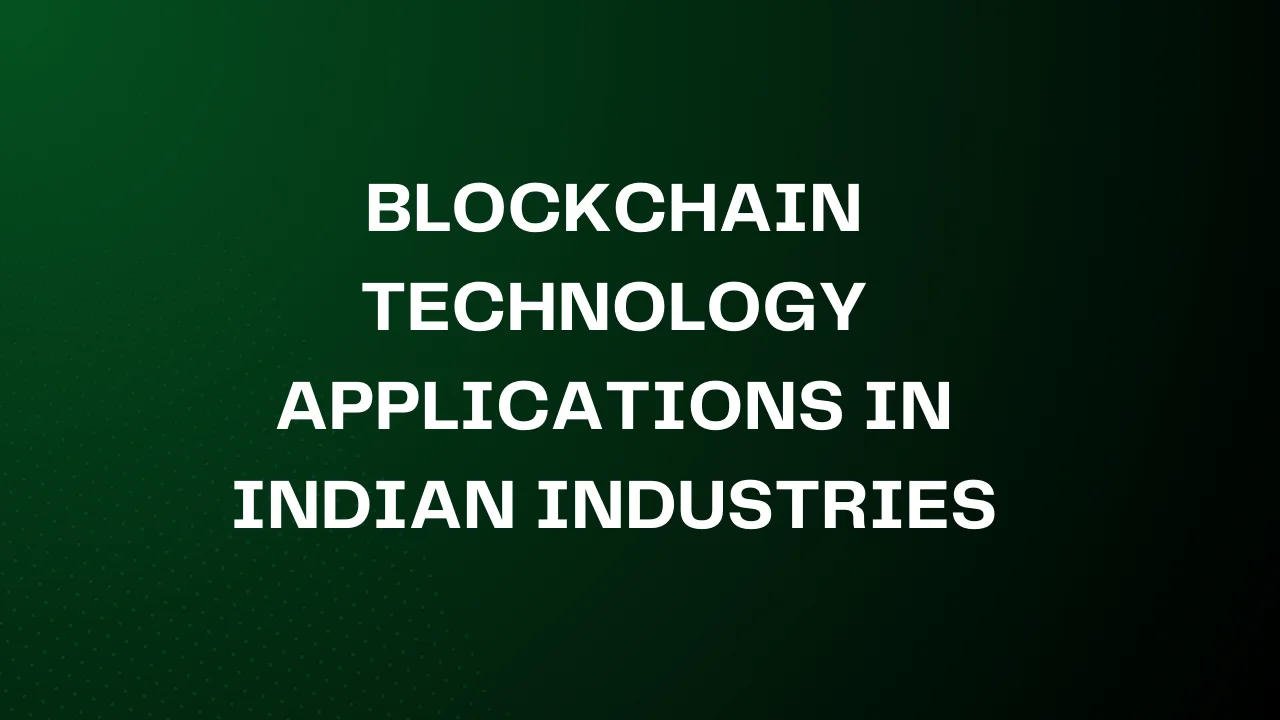A new era of digital innovation has begun in India with the introduction of blockchain technology, which has the potential to revolutionize many industries through increased efficiency, transparency, and safety. This revolutionary technology is transforming various sectors in India, ushering in a wave of innovation and reshaping traditional practices. From finance to supply chain management, healthcare to agriculture, the applications of blockchain technology are vast and far-reaching. In the context of Blockchain Technology Applications in Indian Industries, it was previously utilized to power cryptocurrencies like Bitcoin, but now it’s finding many other innovative applications across diverse sectors, promising greater security, trust, and efficiency in transactions and data management.
Who Benefits from Blockchain in India?
Blockchain technology has many potential users in India’s banking, insurance, healthcare, government, and agricultural industries, among many others. These sectors have never had more opportunity to improve operational efficiencies, safeguard data management, and guarantee transaction transparency than with blockchain’s decentralized and immutable ledger system.
Empowering Indian Banking with Blockchain

Indian Banking Operations
The use of blockchain technology by Indian banks is on the rise as a means to improve efficiency and safety in financial transactions. Banks can cut operational costs, speed up transaction processing, and decrease fraud with blockchain technology.
Financial Transactions Security
Financial transactions in India are being transformed by the inherent security features of blockchain technology. The decentralization and encryption it employs lessen the likelihood of fraud and hacking, protecting assets on all digital platforms.
Decentralized Banking Systems
Decentralized banking, made possible by blockchain technology, is revolutionizing the banking industry by cutting out middlemen, speeding up transactions, and expanding access to banking for the unbanked.
Digital Economy and Blockchain
With blockchain’s ability to facilitate trustworthy digital transactions and increase confidence in e-commerce, India’s digital economy is making great strides forward.
Regulatory Framework for Blockchain
The Indian banking sector needs a well-defined regulatory framework before blockchain can thrive there. This will guarantee consumer protection, security, and compliance while also encouraging adoption.
Revolutionizing Insurance and Public Sector

Blockchain for Insurance Claims
Through the provision of transparent and verifiable records, the reduction of fraudulent claims, and the improvement of customer satisfaction, blockchain streamlines and quickens the insurance claims process in India.
Property Registry Solutions
A government agency is using blockchain technology to build an immutable land registry. As a result, property transactions are made easier, disputes are reduced, and the accuracy of land records is guaranteed.
Vehicle Lifecycle Management
By providing verifiable and transparent records of each vehicle’s history, blockchain technology provides an all-encompassing solution for tracking vehicles in India throughout their entire lifespan, from production to disposal.
IndiaChain for Public Administration
By streamlining government record-keeping, subsidy disbursement, and public service delivery, the blockchain initiative known as IndiaChain hopes to revolutionize public administration.
Transforming Healthcare and Education

Electronic Health Records
Improved care coordination and patient outcomes are possible because blockchain is protecting electronic health records (EHR), making patient data easily accessible across healthcare facilities.
Combating Educational Fraud
By creating safe and unchangeable digital certifications, blockchain technology is helping India fight educational fraud and ensure that degrees are legitimate.
Challenges and Path Forward
Blockchain technology has enormous promise, but there are obstacles to its widespread use in India. Problems include a lack of understanding of its regulatory implications, the exorbitant expense of blockchain expertise, and the widespread belief that it is only applicable to cryptocurrencies. Overcoming these challenges and realizing blockchain’s full potential in Indian industries will require joint efforts from the government, tech companies, and consulting services.
Collaboration for Innovation
Collaboration among different stakeholders is crucial for blockchain to be successful in Indian industries. To fully realize blockchain’s benefits across sectors, government bodies, technology companies, and consultancy firms must collaborate to explore innovative blockchain applications.
Supply Chain Transparency
Blockchain in Supply Chain Management
Indian industries have never been more efficient or transparent thanks to blockchain technology’s incorporation into supply chain management. From production to delivery, it allows for real-time tracking of goods, which helps reduce delays and prevents counterfeit products.
Tax Monitoring Blockchain Systems
By enabling the safe and transparent recording of transactions, blockchain technology provides a strong answer to the problem of tax monitoring. The Indian government stands to gain a great deal from this in terms of reduced tax evasion and improved revenue collection.
Safeguarding Healthcare Data
By utilizing blockchain technology, healthcare providers can guarantee that patient data remains secure and private. Patient care and data privacy are both improved by this technology’s ability to enable the secure sharing of medical records among authorized personnel.
Government Subsidies Distribution
By eliminating middlemen and guaranteeing that subsidies go straight to those who need them, blockchain technology can make government subsidy distribution more efficient.
Addressing Agricultural Challenges

Blockchain Beyond Cryptocurrencies
By creating immutable and verifiable records of food from farm to fork, blockchain technology has the potential to revolutionize food supply chains. Fair trade practices, on-time payments to farmers, and safe food are all guaranteed by this.
Blockchain Adoption Challenges
There are a number of obstacles to overcome before Indian industries can fully embrace blockchain technology. Problems that require fixing include the general public’s misunderstanding of blockchain technology and its potential uses outside of cryptocurrencies, the exorbitant expense of blockchain experts, and the lack of clarity in relevant regulations.
Regulatory Framework for Blockchain
For blockchain technology to be widely used in India, a thorough regulatory framework must be established. To encourage innovation while guaranteeing security and compliance, such a framework would set clear standards for its usage.
Blockchain Expertise Costs in Industries
For many Indian companies, the high expense of employing blockchain specialists is a major obstacle. One way to reduce these costs and encourage innovation is to invest in training and development so that in-house blockchain capabilities can be built.
Future Prospects
Blockchain technology can only be fully realized in India through concerted effort. The public and commercial sectors, as well as academic institutions, need to collaborate on blockchain research, information sharing, and solution development to tackle real-world problems in various industries.
With its capacity to deliver efficient, transparent, and secure solutions across a range of sectors, blockchain holds great promise for the future of Indian industries. In India’s digital transformation journey, blockchain could be a game-changer as the country tackles the obstacles and discovers the possibilities of this technology. India can harness the power of blockchain technology to propel substantial economic growth and social good by cultivating an environment that encourages collaboration, innovation, and regulatory backing.
Must Check: Blockchain Investment Opportunities India: An Ultimate Guide
Conclusion
Improved efficiency, security, and transparency are just a few of the ways in which blockchain technology could revolutionize Indian industries. The integration of Blockchain Technology Applications in Indian Industries promises to streamline processes, enhance data security, and provide unparalleled transparency across various sectors. Although there are obstacles, a digital revolution in India can be achieved through joint efforts by the public and private sectors to clarify regulations, manage costs, and educate about the applications of blockchain technology. To make sure that every part of the Indian economy can reap the benefits of blockchain technology, we must encourage creativity, teamwork, and trust as we adopt this technology.

Brandy Stewart, an enchanting wordsmith and seasoned blogger, weaves compelling narratives that transport readers to uncharted territories. Infused with perceptive viewpoints and dynamic storytelling, Doris exhibits a command of language that enthralls both hearts and minds, leaving a lasting mark on the literary panorama.

